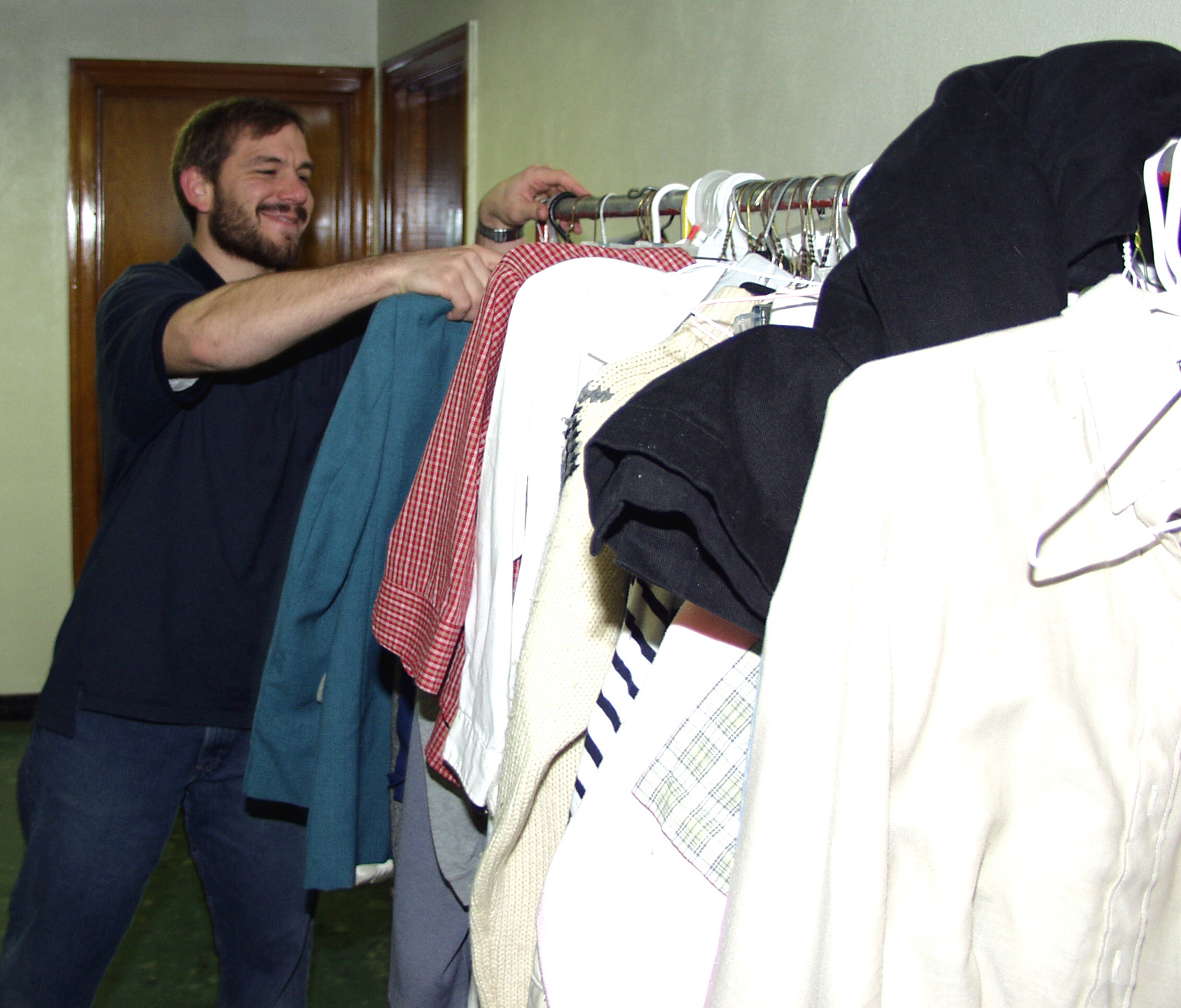
LOUISVILLE, Ky. (BP)–A hot lunch and a pair of jeans, some spaghetti and a coat for winter.
For most people, these items are afterthoughts — expected, assumed, taken for granted. But for Kory Wenell, they are something more. For this master of divinity student at Southern Baptist Theological Seminary, one person’s tossed-away afterthought can be an avenue for the Gospel — a way of reaching those who lack both clothes and Christ.
Wenell leads the clothing closet ministry of Immanuel Baptist Church in an inner-city neighborhood in Louisville, Ky. Every Friday from 10 a.m.-2 p.m., Wenell and nine other volunteers from the church distribute some 250 articles of clothing to two dozen or more individuals. The church also provides lunch and has fed as many as 50. Five seminary and Boyce College students are among the volunteers — Ben Hedrick, John Randolf, Rick Romero, Lisa Sipes and Mark Timmons.
The people who visit the closet come mostly from the surrounding community — Shelby Park in Louisville’s downtown, a neighborhood area known for destitution, drugs and despondency.
“You have a lot of people that have been in this small community in Louisville their whole lives,” said Wenell, a native of Albert City, Iowa. “They get stuck in a rut. A lot of them have never held down a job and have never seen a good, healthy family, and their parents were alcoholics. They’ve never seen anything else modeled to them.”
But, of course, the ministry provides far more than temporal needs. Wenell and the church volunteers attempt to give the people something more lasting — eternal hope.
“The goal is not just to hand out food or clothes,” he said. “The goal is to have an opportunity to invest in people’s lives.”
The ministry seeks to accomplish this goal through two means. First, Wenell prepares a devotion for the lunch gathering every Friday, complete with a Gospel presentation.
However, the principal means of reaching the people who come to the closet is through relationship building. Wenell and the other volunteers attempt to visit each person who comes to obtain clothes in order to establish a rapport with the families. With a few families, this rapport grows into a meaningful relationship.
“The clothes closet ministry opens up a lot of doors to build relationships in the community,” Wenell said.
Wenell’s group visits with, eats with, and supports these families on sometimes a weekly basis. But Wenell hopes that the relationships that are established are more than just friendships.
“A big part of the clothes closet is making connections, but the goal is conversion,” Wenell said. “… I’ll admit — it’s a slow, long process. And sometimes it can be pretty discouraging, because we put a lot of effort in visiting people and meeting with people and trying to help at their low points and also trying to be there for high points.”
Yet, Wenell said the ministry is bearing fruit. As a result of the connections with the families, several volunteers have initiated weekly evangelistic Bible studies in the homes. Wenell himself has seen two people come to Christ through the ministry. One recent convert is a single woman who is raising three of her nieces and nephews.
Some of these relationships are established not with people who come to the closet, but with people who see the ministry of the closet.
“It [the ministry] says that we care,” Wenell said. “… I think sometimes the people that we reach in the community are not necessarily the people we give clothes or food to. It’s just because it communicates that we are here and willing to enter into people’s struggles.”
Wenell himself lives near the church and the ministry — an inner-city context that is a long way from the Iowa farm community where he grew up and his parents raise hogs.
Wenell spends about 10-15 hours a week working with ministry related to the clothes closet, with the driving motive behind his ministry being “genuine love.”
“You have to really love these people to make it work,” said Wenell, who will graduate in May. “It’s a not just a ‘get together with them’…. You’ve got to really love them.
“So, when their kid gets in trouble in school, you go to see the principal with them. When they’re in prison, you are there at the trial. Those are extreme cases, but you want to be there in their lives.”
–30–















